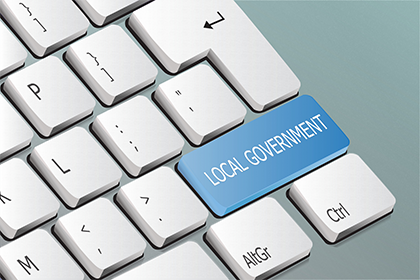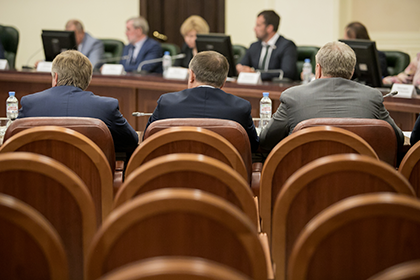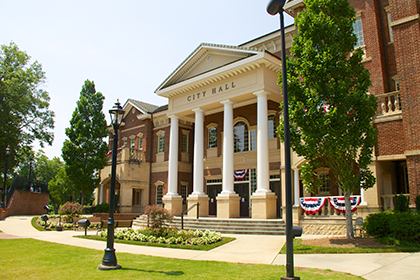Nucleus One: Modernizing Municipality Management and Local Government Operations
The demands of modern municipal management have never been greater. The need to coordinate resources, communicate effectively among departments, and deliver timely services to citizens requires innovative solutions. Nucleus One, a cloud-based workplace collaboration platform, is a powerful tool that can transform the way municipalities and local governments operate. With features such as project management, task management, public portals, document management, digital signatures, form creation, automated workflows, and software integrations, Nucleus One can help local governments achieve new levels of efficiency, transparency, and citizen engagement.
Section 1: Enhancing Municipal Operations with Nucleus One
Nucleus One offers a comprehensive solution for managing municipal operations by enabling the creation of distinct projects tailored to each department or initiative. This approach simplifies the management of tasks and checklists related to various processes, such as urban planning, public safety, and environmental management. By assigning tasks to staff members, contractors, and other stakeholders, local governments can foster collaboration, streamline communication, and ensure that everyone is working cohesively towards achieving their goals.
The platform's automated workflows are a key component in elevating operational efficiency. These workflows are designed to trigger actions based on specific events or conditions, such as task completion, a specified date, or an approval request. By automating these actions, Nucleus One reduces manual work, accelerates processes, and minimizes the risk of errors.
For instance, when a permit application is submitted, Nucleus One can automatically initiate a series of tasks, such as reviewing the application, conducting an inspection, and obtaining necessary approvals. This level of automation ensures that the permit process runs smoothly and efficiently, without the need for constant manual intervention.
Similarly, automated workflows can be applied to infrastructure maintenance. When a scheduled maintenance task is completed, Nucleus One can automatically generate a report, update the maintenance log, and notify relevant stakeholders. This ensures that all maintenance activities are accurately recorded and that responsible parties are kept informed.
In the case of community event planning, Nucleus One can automate various tasks, such as booking venues, organizing resources, and promoting events. By streamlining these processes, local governments can save time, reduce administrative burdens, and focus on delivering high-quality events that enrich their communities.
In summary, Nucleus One empowers municipalities to enhance their operations through streamlined task management, improved collaboration, and the implementation of automated workflows. By leveraging these features, local governments can optimize their processes, reduce inefficiencies, and ultimately, better serve their citizens.
Section 2: Comprehensive Document Management and Robust Digital Signatures with Nucleus One
Nucleus One provides municipalities with a centralized document management system, effectively consolidating all essential documents in one accessible location. This includes permits, contracts, public records, policy documents, and other critical files. With the platform's robust document management features, local governments can efficiently store, categorize, and track these documents, making it easy for authorized users to access and retrieve the information they need. Furthermore, version control and audit trails ensure that documents remain up-to-date and that any changes are logged for transparency and accountability.
The platform's advanced search capabilities enable users to quickly locate relevant documents by searching for keywords, document types, or other metadata. This feature saves time and ensures that municipal staff can access the information they need to make informed decisions.
In addition to comprehensive document management, Nucleus One offers secure digital signature capabilities, streamlining the process of obtaining legally compliant signatures for crucial documents such as contracts, agreements, and official forms. This feature eliminates the need for paper-based, manual signing processes, which can be slow and prone to errors.
Digital signatures in Nucleus One adhere to industry-standard security protocols, ensuring that signatures are secure and legally binding. By using digital signatures, municipalities can protect sensitive information and maintain compliance with regulatory requirements. Additionally, the digital signature process provides an audit trail, making it easy to track and verify the signing process's integrity.
In summary, Nucleus One's centralized document management and secure digital signature features empower municipalities to effectively manage their documents, streamline signing processes, and enhance the security of sensitive information. By leveraging these capabilities, local governments can improve operational efficiency, maintain regulatory compliance, and ensure that important information is readily accessible to those who need it.

Section 3: Boosting Citizen Engagement with Forms Automation and Public Portals in Nucleus One
Nucleus One's forms automation feature plays a crucial role in enhancing citizen engagement by simplifying the process of gathering information from community members. This powerful tool allows municipalities to create custom, user-friendly forms for various purposes, such as permit applications, service requests, citizen feedback, and more. By streamlining the data collection process, local governments can ensure a more efficient and accurate transfer of information between citizens and municipal departments.
When citizens submit information through these forms, Nucleus One can automatically populate the relevant data into corresponding documents and systems. This automation not only saves time for both citizens and municipal staff but also minimizes the risk of manual entry errors, improving the overall quality and reliability of the data collected.
Furthermore, Nucleus One's public portal feature allows municipalities to create dedicated online spaces where citizens can access and interact with important municipal information. Through these public portals, citizens can:
- Browse and search a well-organized repository of public documents, such as city council meeting minutes, budget reports, zoning ordinances, and more.
- Access and submit important forms and applications, including building permits, business licenses, and park reservation requests, with just a few clicks.
- View and download public records and documents on-demand, fostering transparency and trust between the municipality and its citizens.
- Submit feedback, suggestions, or requests related to municipal services, allowing the local government to gather valuable input and address citizen concerns in a timely manner.
These public portals provide a user-friendly, centralized platform for citizens to access the information and services they need, making it easier than ever for them to engage with their local government. By implementing forms automation and public portals, municipalities can boost citizen engagement, enhance their service offerings, and build stronger, more connected communities.
Nucleus One's public portal feature provides citizens with transparent access to a folder tree of public documents related to municipal operations and projects. This enables citizens to browse and search for important documents, access forms and applications, view and download public records, and submit feedback or requests related to municipal services. This level of engagement promotes trust and transparency between the municipality and its citizens.
Section 4: Harnessing the Power of Triggers and Actions for Optimal Efficiency in Municipal Operations
Nucleus One provides municipalities with a comprehensive set of triggers and actions that can be customized to initiate specific processes or perform tasks automatically. These triggers and actions, when used effectively, can greatly enhance operational efficiency, responsiveness to citizens' needs, and overall management of municipal services.

The platform offers a variety of triggers, including new service requests, task completion, approval requests, time-based triggers, manual triggers, and event-based triggers, which can be configured to initiate a range of actions. These actions encompass a wide array of tasks, such as:
- Assigning tasks: Automatically delegate tasks to appropriate municipal employees or departments based on the specific trigger.
- Sending notifications: Notify relevant stakeholders, including citizens, municipal staff, and city council members, through email or SMS when a trigger occurs.
- Updating service request statuses: Automatically modify the status of service requests in the system based on the corresponding trigger.
- Creating or updating documents: Generate or modify documents, such as permits, reports, or maintenance logs, based on the information provided by the trigger.
- Requesting approvals: Seek approval from the relevant stakeholder for tasks, documents, or decisions based on the trigger.
- Scheduling appointments: Automatically arrange appointments or events, like inspections, meetings, or public hearings, according to the trigger.
- Generating reports: Produce customized reports on service request statuses, department performance, or budget allocation based on the trigger.
- Storing and managing documents: Organize and store all pertinent municipality documents, such as permits, contracts, and public records, in a central repository for easy access, collaboration, and compliance.
- Integrating with external tools: Automatically synchronize municipal data and activities with external tools, like GIS systems, financial management software, or emergency response systems, based on the trigger.
- Publishing information to the public portal: Instantly update the public portal with relevant information, including service request statuses, public records, or event details, depending on the trigger. This allows citizens to access and interact with municipal information easily and transparently.
By automating these actions, municipalities can significantly enhance their operational efficiency, ensure timely completion of tasks, and quickly respond to citizens' needs. Moreover, automation reduces the risk of human error and frees up valuable time and resources for municipal staff, enabling them to focus on higher-priority tasks and projects. In summary, Nucleus One's powerful triggers and actions provide a customizable and adaptable solution for local governments to optimize their operations and deliver exceptional services to their communities.
Section 5: Seamlessly Integrating Nucleus One with Existing Systems for Cohesive Municipal Operations

One of the most significant advantages of Nucleus One is its capacity to integrate seamlessly with a variety of external tools and systems that municipalities commonly employ. This compatibility enables local governments to maximize the value of their existing technology investments, while simultaneously streamlining their processes and boosting overall efficiency.
Some of the common systems that Nucleus One can integrate with include:
- Geographic Information Systems (GIS): Integrating with GIS systems allows municipalities to visualize and analyze spatial data related to municipal projects and initiatives. This helps local governments make better-informed decisions about resource allocation, infrastructure planning, and community development.
- Financial Management Software: By connecting with financial management systems, Nucleus One can automatically synchronize budget data, expense tracking, and financial reports, ensuring accurate, up-to-date information is readily available for decision-making and reporting purposes.
- Emergency Response Systems: Integration with emergency response systems enables municipalities to automate the coordination and communication of emergency management activities, such as dispatching first responders, alerting citizens, and sharing critical information with relevant stakeholders.
- Customer Relationship Management (CRM) Software: By integrating with CRM systems, Nucleus One can centralize citizen information, service requests, and interactions, enhancing the overall quality of customer service provided by the municipality.
- Human Resources (HR) Systems: Linking Nucleus One with HR systems allows for the automated management of employee information, scheduling, and performance tracking, improving the efficiency of human resources management within the municipality.
- Asset Management Systems: Integration with asset management software enables Nucleus One to keep track of and manage municipal assets, such as vehicles, equipment, and infrastructure, ensuring proper maintenance, utilization, and budget allocation.
By integrating with these and other external tools and systems, Nucleus One can function as the central hub for all municipal operations. This cohesive approach allows municipalities to automate data synchronization and streamline their workflows, minimizing the potential for errors and redundancies. As a result, local governments can deliver better services, make more informed decisions, and allocate resources more effectively, ultimately leading to improved outcomes for their communities.
Section 6: Leveraging Real-time Monitoring and In-depth Reporting for Enhanced Decision Making in Municipalities
Nucleus One empowers municipal managers with the ability to closely monitor the progress of each project or process through its real-time updates, notifications, and reporting features. This continuous monitoring allows managers to quickly identify any delays, bottlenecks, or areas of concern within their operations, enabling them to take corrective action in a timely manner and ensure the smooth and efficient execution of municipal tasks.
Key features of Nucleus One's monitoring and reporting capabilities include:
- Real-time Updates: Municipal managers can receive instant updates on task progress, service request statuses, and project milestones, allowing them to stay informed and respond quickly to changes or issues that arise.
- Notifications: Customizable notifications ensure that relevant stakeholders are alerted to important events, such as task completions, deadlines, or approval requests. This promotes effective communication and collaboration among team members and across departments.
- Custom Reports: Nucleus One's flexible reporting tools allow managers to create tailored reports that focus on specific areas of interest, such as service request status, department performance, or budget allocation. These reports can be generated on-demand or scheduled to run at regular intervals, providing valuable insights and trends to inform data-driven decision making.
- Interactive Dashboards: The platform's interactive dashboards offer an at-a-glance view of key performance indicators (KPIs) and metrics, enabling managers to quickly assess the health and progress of their operations. Dashboards can be customized to display the most relevant data for each user or department, ensuring that critical information is readily accessible.
- Collaborative Reviews: Nucleus One's collaboration features allow managers to easily share reports and insights with their teams, fostering open communication and joint problem-solving efforts. This collaborative approach helps to ensure that everyone is on the same page and working together to achieve common goals.
By harnessing the power of real-time monitoring and in-depth reporting, municipal managers can gain a comprehensive understanding of their operations and make informed, data-driven decisions to optimize efficiency, resource allocation, and overall performance. Ultimately, this enhanced decision-making capability leads to better outcomes for both the municipality and its citizens.
Section 7: Enhancing Municipal Staff Capabilities with Manual Triggers in Nucleus One

Nucleus One's manual triggers provide a powerful tool for municipal staff members to initiate specific actions or processes as required, giving them greater control and adaptability in their day-to-day work. By utilizing manual triggers, employees can proactively respond to the evolving needs of their community, ensuring efficient and effective municipal services.
Some key applications of manual triggers in a municipal context include:
- Issue Escalation: When a staff member encounters a complex or high-priority issue that requires attention from a higher authority, they can use a manual trigger to quickly escalate the matter, ensuring prompt resolution and minimizing potential negative impacts on the community.
- Resource Requests: Municipal projects may occasionally require additional resources, such as personnel, equipment, or funding, to be successfully completed. Manual triggers enable staff members to submit resource requests with ease, facilitating timely allocation of necessary resources and enhancing overall project outcomes.
- Reminder Emails: In a busy municipal environment, it's not uncommon for tasks or deadlines to be overlooked. Manual triggers empower employees to send reminder emails to themselves or their colleagues, promoting accountability and helping to keep projects on track.
- Workflow Adjustments: Unforeseen circumstances may require adjustments to existing workflows or processes. With manual triggers, staff can initiate changes as needed, ensuring that operations remain flexible and adaptable in the face of challenges.
- Interdepartmental Collaboration: Manual triggers can facilitate collaboration between departments by allowing staff to initiate requests for assistance or information sharing from other teams. This fosters a more cohesive and cooperative working environment within the municipality.
By incorporating manual triggers into their daily operations, municipal staff are better equipped to manage their workloads, adapt to changing circumstances, and ensure that their community's needs are met effectively and efficiently.
Section 8: Prioritizing Data Security and Compliance with Nucleus One
Ensuring the security of sensitive data and maintaining compliance with legal and regulatory requirements are paramount concerns for municipalities. Nucleus One is designed with robust security features and compliance tools that not only safeguard critical information but also help local governments adhere to the ever-evolving landscape of rules and regulations.
Key aspects of Nucleus One's data security and compliance capabilities include:
- Single Sign-On (SSO) Authentication: Nucleus One leverages single sign-on technology, allowing users to securely access the platform using their Google, Apple, or Microsoft accounts. This authentication method simplifies the login process while ensuring that sensitive information remains protected and accessible only to authorized users.
- Role-Based Access Control (RBAC): The platform offers fine-grained, role-based access control, enabling municipalities to define user roles and permissions according to their specific requirements. This ensures that sensitive data and critical functions are only accessible to those with the appropriate level of authority.
- Data Encryption: Nucleus One employs strong encryption methods to protect sensitive data both at rest and in transit. This ensures the confidentiality, integrity, and availability of critical information, minimizing the risk of data breaches or unauthorized access.
- Secure Digital Signatures: The platform's support for digital signatures allows municipalities to request and manage legally compliant, secure signatures for essential documents such as contracts, agreements, and official forms. This feature enhances the security of sensitive information while simplifying the signing process.
- Centralized Document Management: Nucleus One's centralized document management system enables local governments to store, organize, and track essential documents efficiently, ensuring that information is easily accessible, up-to-date, and compliant with legal and regulatory requirements.
- Audit Trails: The platform provides comprehensive audit trails that track user activities, document modifications, and other critical events. These trails allow municipalities to maintain a clear record of actions taken, supporting accountability and compliance with various regulations.
- Regular Security Updates: Nucleus One's development team is committed to staying current with the latest security best practices and continuously updates the platform to address potential vulnerabilities and emerging threats.
By incorporating these robust security features and compliance tools, Nucleus One empowers municipalities to safeguard sensitive information, maintain regulatory compliance, and uphold the trust of their citizens.

Conclusion:
In an era of increasing demands on local governments, Nucleus One offers a powerful, comprehensive solution for municipalities looking to streamline their operations, enhance collaboration, and better serve their citizens. By harnessing the power of automation, real-time monitoring, and secure, transparent data access, Nucleus One empowers municipalities to become more efficient, responsive, and accountable to the communities they serve. Investing in Nucleus One is not only an investment in technology but also an investment in the future success and prosperity of local governments and their constituents.